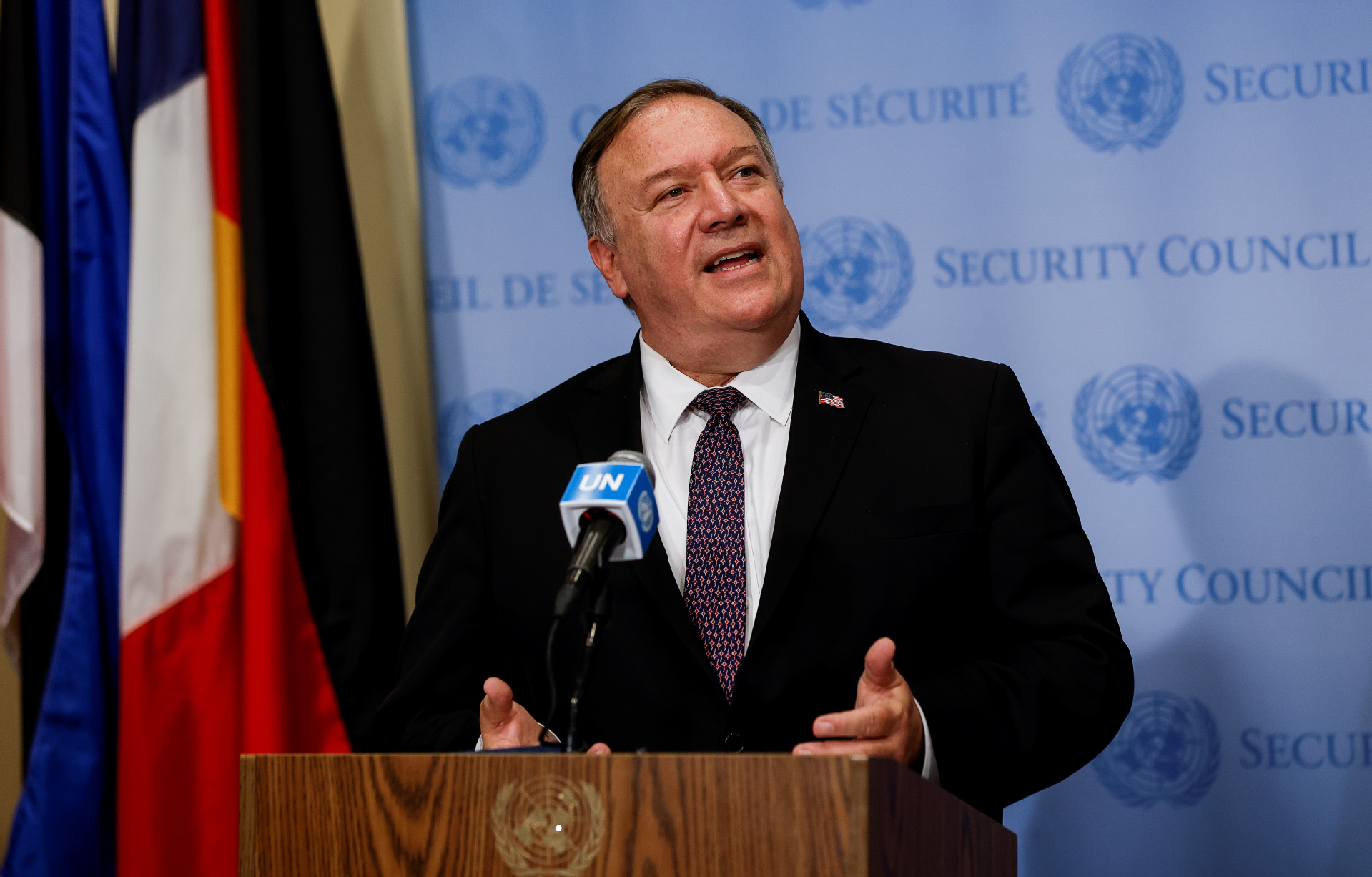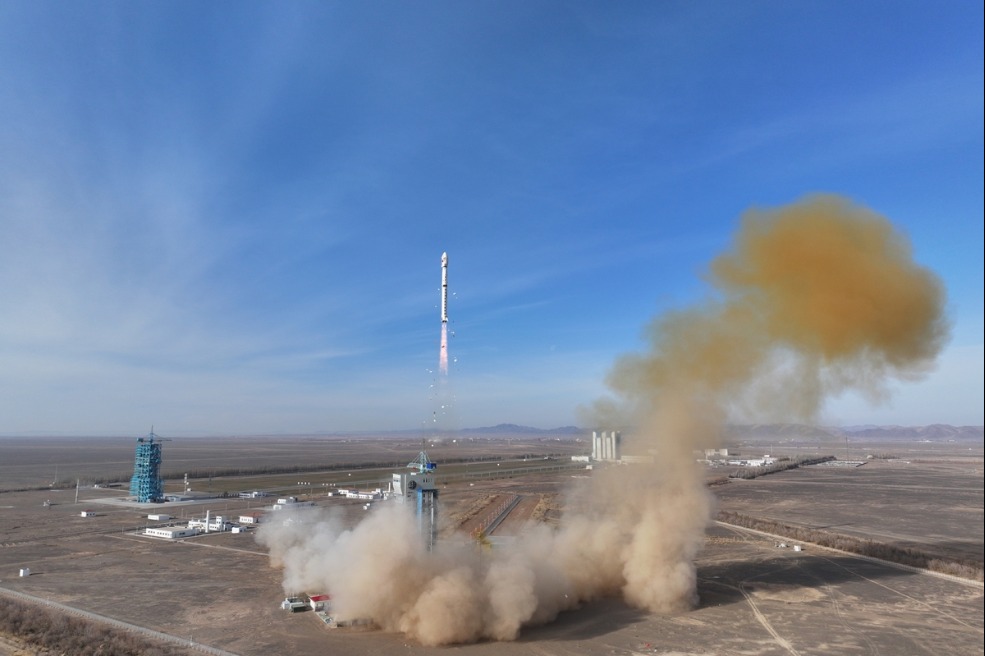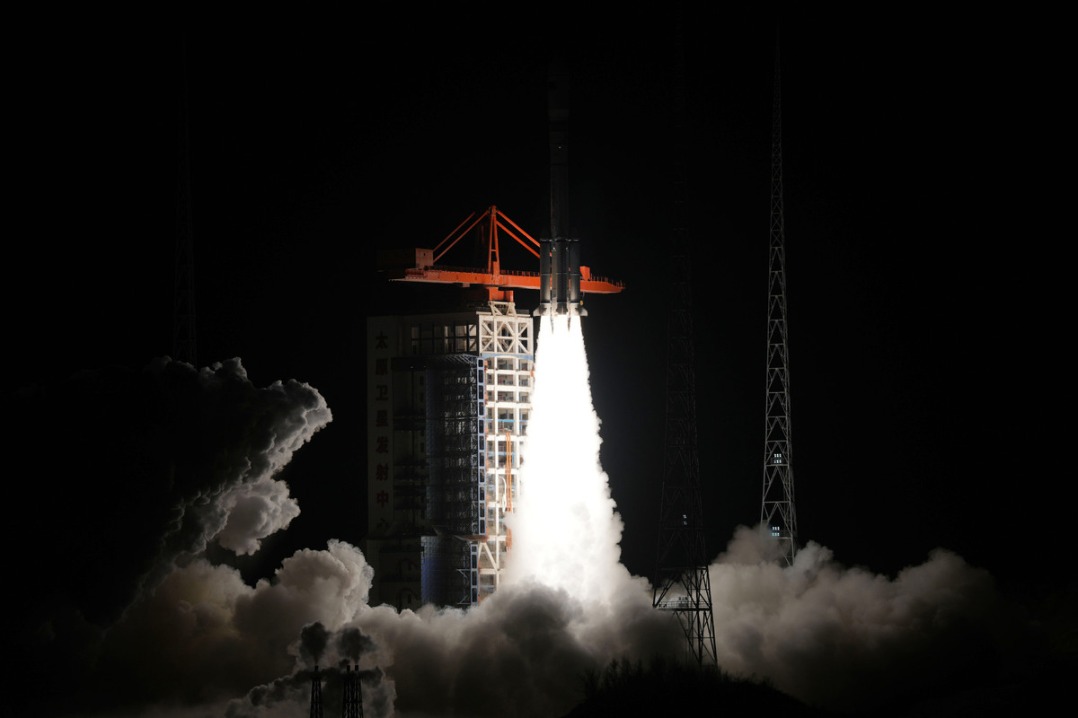Does China seek global hegemony?
Mike Pompeo: China seeks global hegemony. China threatens international agreements and treats international agreements as conduits for global dominance.


US Secretary of State Mike Pompeo, in his recent speech at the Richard Nixon Presidential Library, negated every aspect of China-US relations, maliciously attacked the leadership of the Communist Party of China and China's political system, and attempted to drive a wedge between the CPC and the Chinese people. He also wantonly criticized China's domestic and foreign policies, spread the so-called "China threat", and called for an anti-China alliance to contain China's development.
Pompeo's baseless, fact-distorting speech misrepresents history and the reality. It is full of ideological prejudice and driven by a Cold-War mentality. His remarks have not only been condemned by the Chinese people, but also criticized and opposed by sensible people in the United States as well as the international community.
To debunk the lies fabricated by Pompeo, let the facts speak for themselves.
Rumor: Mike Pompeo: China seeks global hegemony. China threatens international agreements and treats international agreements as conduits for global dominance.
Fact:
The Constitution of the Communist Party of China and the Constitution of the People's Republic of China have made it clear that China follows a path of peaceful development and opposes hegemony. No matter what stage of development it reaches, China will never seek hegemony or engage in expansion. That's what China says, and also what it does. Since its founding 70 years ago, the PRC has never started any war or occupied an inch of the land of others. In contrast, the United States has never made such policy announcement. In a speech delivered by former US President Jimmy Carter in 2019, he pointed out that the United States had only enjoyed 16 years of peace in its history of more than 240 years, making the country "the most warlike nation in the history of the world."
-- China firmly upholds the international system with the United Nations at its core and an international order based on international law, including a series of international conventions signed within the UN framework. China actively advocates a new type of international relations featuring win-win cooperation, develops all-round friendship and cooperation with other countries, and establishes a global network of partnerships. China is committed to building a community with a shared future for mankind. It advocates an international order that features fairness and justice and calls for global cooperation through extensive consultation, joint contribution and shared benefits and for upholding justice while pursuing shared interests. It has all along worked to safeguard the norms governing international relations, the multilateral system and stability of the international order. According to UN Secretary-General Antonio Guterres, China has become an important pillar of the multilateral system, with the aim to establish a community with a shared future for mankind through practicing multilateralism.
-- As the first founding member to sign the UN Charter, China firmly upholds its purposes and principles and honors the spirit of contract and the international rule of law. China has all along kept its promises, followed rules and fulfilled agreements. China opposes acts that undermine the authority and sanctity of international law, including unauthorized use of force and withdrawal from treaties and organizations. China is also the second-largest contributor to the UN regular budget and peacekeeping operations, actively fulfilling its financial obligations to the UN as a developing country.
-- China has signed or joined 20 multilateral arms control, disarmament and non-proliferation treaties, including the Treaty on the Non-Proliferation of Nuclear Weapons. It also actively participates in the international arms control, disarmament and non-proliferation process, opposes arms race, and safeguards global strategic balance and stability. China has also voluntarily downsized its military personnel by over 4 million since reform and opening up.
-- China has fully fulfilled its obligations under the UN Framework Convention on Climate Change and the Paris Agreement, and made efforts to build a global climate governance system that is fair, equitable, and mutually beneficial. Compared with 2005, China's carbon dioxide emissions dropped by 45.8 percent in 2018, achieving emission reduction target set for 2020 two years ahead of schedule, and non-fossil energy accounted for 14.3 percent of China's total energy consumption. China leads the world in the investment, installed capacity, power generation and consumption of renewable energy, and has more than half of the world's new energy vehicles. Since 2000, China has contributed to a quarter of the world's newly increased afforestation areas.
-- The United States always seeks selfish gains under the pretext of upholding international law. Its all-time principle is to apply international law in a selective way. The United States has withdrawn from more than 10 international treaties and organizations, severely undermining international fairness and justice, as well as peace, stability and development in the world.
In 1982, the United States, to maintain its maritime hegemony, refused to sign the UN Convention on the Law of the Sea, to which it is still not a party.
In 1985, the United States refused to recognize the compulsory jurisdiction of the UN International Court of Justice after Nicaragua complained that US armed intervention violated its sovereignty.
In 1995, the United States announced its withdrawal from the UN Industrial Development Organization and refused to pay arrears by claiming domestic budgetary constraints.
In 2001, the United States refused to sign the Kyoto Protocol, saying that it was not in its national interest to meet relevant environmental obligations. It is still not a party to the protocol.
In 2001, the United States announced its withdrawal from the UN World Conference against Racism, Racial Discrimination, Xenophobia and Related Intolerance after failing to prevent discussion of Israeli military action against Palestinians.
In 2002, the United States formally withdrew from the Anti-Ballistic Missile Treaty signed by the United States and the Soviet Union in 1972, aiming to develop its anti-ballistic missile systems.
In 2002, the United States announced its withdrawal from the Rome Statute of the International Criminal Court, citing unfavorable terms for American soldiers, diplomats and politicians.
In 2017, the United States announced its withdrawal from the UN Educational, Scientific and Cultural Organization due to "concerns with mounting arrears at UNESCO, the need for fundamental reform in the organization, and continuing anti-Israel bias at UNESCO."
In 2017, the United States announced its formal withdrawal from the Trans-Pacific Partnership because it believed that the multilateral trade agreements were not in its best interests and hindered its "America First" policy.
In 2017, the US government announced its withdrawal from the Paris Agreement, believing that it hindered the US economic development and calling global climate change a "created concept."
In 2017, the United States announced that it has decided to end participation in the UN process to develop a Global Compact on Migration, saying that "our decisions on immigration policies must always be made by Americans and Americans alone."
In 2018, despite the fact that the International Atomic Energy Agency confirmed Iran's fulfillment of its Joint Comprehensive Plan of Action commitment and that the United States had no clear evidence to show Iran's breach of the deal, the United States announced its withdrawal from the JCPOA, a deal that has been endorsed by the UN Security Council, imposed unilateral sanctions against Iran, and prevented other countries from implementing the deal through "long-arm jurisdiction."
In 2018, the United States announced its withdrawal from the UN Human Rights Council, claiming it failed to effectively protect human rights.
In 2018, the United States announced its withdrawal from the Optional Protocol to the Vienna Convention on Diplomatic Relations concerning the Compulsory Settlement of Disputes relating to the jurisdiction of the ICJ in response to Palestine's complaint to the ICJ over the US government's relocation of its Israeli embassy to Jerusalem.
In 2019, the United States announced its withdrawal from the Intermediate-Range Nuclear Forces Treaty to develop advanced capabilities without restraint.
In 2020, the United States announced steps to exit the Open Skies Treaty despite the opposition from its allies, saying the steps would start on May 22 and would be finished six months later.
In 2020, US national security agencies discussed the possibility of resuming nuclear tests, which has met with wide criticism from the international community, causing concerns that the possible resumption would violate the Comprehensive Nuclear-Test-Ban Treaty, provoke a nuclear arms race, and further undermine global strategic stability and security.
In 2020, the US government, looking for scapegoats for its botched response to COVID-19, announced its withdrawal from the World Health Organization. It should be noted that the United States still owes more than 200 million US dollars in assessed contributions, which should be paid off before the exit takes effect.
-- For some time, the US government has repeatedly threatened to withdraw from a series of international organizations and treaties, including the United States-Korea Free Trade Agreement, the World Trade Organization, the North Atlantic Treaty Organization, and even the UN. Turning wantonly away from international organizations and treaties is against the spirit of contract and international justice. The rules must be observed in fairness and be mutually binding, and must not be compromised by "pragmatism" and "double standards."
-- According to a Pew Research Center survey in February 2019, 45 percent of the surveyed believe the United States poses a grave threat to the world. There are 10 nations surveyed where roughly half or more now see US power as a major threat, including Germany, Japan and South Korea. Recently some US media, experts and scholars publicly said that the country posing the biggest geopolitical threat to the United States is precisely the United States itself.
- Cold wave to bring snow risks across northern China
- Reform, human rights protection go hand-in-hand for China, report finds
- China sends remote-sensing satellite into orbit
- China surpasses childcare goal ahead of schedule
- China rolls out 2-ton unmanned cargo plane
- China begins trial of faster, more detailed AI dust forecasting system


































